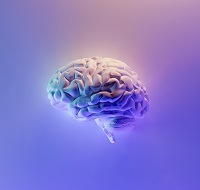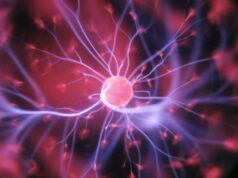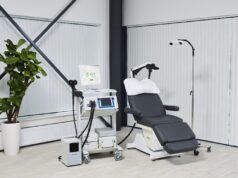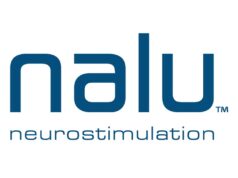 BlueWind Medical, a company making neuromodulation medical devices for the treatment of overactive bladder, has announced that the 100th patient has been enrolled in its OASIS (Overactive bladder stimulation system) study—a clinical pivotal trial designed to test the safety and efficacy of the Renova iStim system in providing tibial neuromodulation (TNM) therapy.
BlueWind Medical, a company making neuromodulation medical devices for the treatment of overactive bladder, has announced that the 100th patient has been enrolled in its OASIS (Overactive bladder stimulation system) study—a clinical pivotal trial designed to test the safety and efficacy of the Renova iStim system in providing tibial neuromodulation (TNM) therapy.
The 100th patient was enrolled at St Mary’s Hospital in London, UK by consultant obstetrician and gynaecologist Alex Digesu. “I had the privilege of taking part in both the pilot and pivotal trials of the Renova iStim System” he said. “I find the Renova iStim device easy to implant for a surgeon and easy to operate for a patient.”
OASIS is a prospective, single-arm, international multicentre study. The study is enrolling female patients suffering from urinary incontinence and is testing the safety of the device, as well as the ability of TNM therapy to reduce and even eliminate incontinence episodes. At the conclusion of the study, BlueWind intends to submit the device for US Food and Drug Administration (FDA) clearance.
The Renova iStim system is composed of two parts: a miniature, implanted stimulator and a mobile, wearable device. Patients undergo a simple procedure under local anaesthesia that typically lasts half an hour or less, and can be performed by the patient’s urologist or urogynaecologist, to implant the stimulator device. After implantation, patients wear a device on their ankle, which communicates wirelessly with the stimulator to perform TNM treatments twice a day for 30 minutes at a time. Patients can opt to be mobile when wearing the device or therapy can be administered with the patient stationary, in the comfort of their own home, at a convenient time.
“Several advantages [battery-less, leadless, miniature, closed-loop stimulation] make the Renova iStim innovative neuromodulation system an interesting option for patients with overactive bladder symptoms who do not respond to, or cannot tolerate, conventional medical therapy,” added Digesu.
Results from BlueWind’s previous pilot clinical study have been optimistic, according to a company press release, showing that more than 70% of patients receiving treatment were responders as measured by composite overactive bladder symptoms, with 28% of patients becoming fully “dry”.









